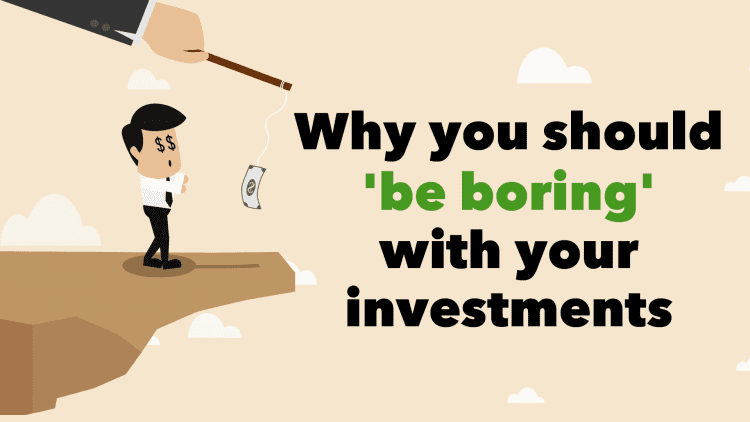If you follow financial accounts on social media, your timeline is likely crowded with people touting the next big winning investment. "Buy our favorite stock or cryptocurrency now, before it goes to the moon," they tell you.
As an investor, there's an undeniable allure to finding the next Big Winner: the tiny tech stock that turns into the next Amazon or the coin that makes you an overnight millionaire. But what if instead of chasing the big win, you played the investing game with the goal of simply not losing?
More from Grow:
Why a bitcoin millionaire 'doesn't recommend’ crypto for new investors
Getting investment advice from Reddit and TikTok? Be careful: Experts
The top 10 U.S. cities for retirees who want low cost of living
Chances are, you'll come out ahead, says behavioral finance expert Brian Portnoy, founder of Shaping Wealth and author of "The Geometry of Wealth." "Adopting inverted thinking — facing problems from the opposite point of view — is such a powerful mental trick," he says. "The world becomes a brighter and cleaner place once you get used to it."
Here's what he means.
Win by avoiding big mistakes
Portnoy's point of view on investing has been around, in one form or another, for decades. In a recent Twitter thread on the topic, he cited investment consultant Charley Ellis' 1975 research paper "The Loser's Game," in which Ellis argued that winning at investing was akin to winning at tennis.
There are two ways to win with a racket, Ellis wrote. If you're a pro, you hit high-speed, well-placed shots to defeat your opponent. But for amateur players, the vast majority of points are won and lost when an opposing player makes an error. Amateurs can triumph merely by keeping the ball in play and making fewer mistakes than their opponent.
In investing, avoiding big mistakes is the key to earning long-term returns. Remember: A drawdown of 50% requires a return of 100% to break even. What's more, even most active mutual fund managers have trouble consistently outperforming their benchmark indexes. So, the question becomes: When it comes to picking winning investments, are you a pro or an amateur?
Your social media feed might tell you you're a pro, or at least influencers may suggest you have the potential to be one. After all, that one kid from high school who used to headbutt his locker has become fabulously wealthy from crypto.
Don't get taken in. "That's sample bias at work," says Portnoy. "We see the winners because they're on the cover of magazines, but there are many more losers out there. We don't see them, but they're there."
If we're being honest with ourselves, "we're amateurs at most of the games we play," Portnoy says. "Trying not to lose is often the most prudent thing to do."
For self-acknowledged amateurs, the easiest way to take advantage of this strategy is investing in low-cost index funds. "Rather than trying to identify the next Amazon, it makes more sense to just try to own the whole market, and not make big bets on what may turn out to be crappy investments."

Video by Courtney Stith
Take calculated risks and 'pick your spots'
None of that is to say you can't take a chance on the occasional investment you think might pay off big. "I don't think you have to jump to putting all of your assets in an index," Portnoy says. "But it leads to a practical piece of advice, which is [to] pick your spots."
It could be that you have real and profound expertise in a certain area of the market and the know-how to take a risk in that arena. Regardless of your comfort level with a cryptocurrency or individual stock, experts recommend doing extensive research before buying, so that you know your reasons for investing, the potential risks involved, and what you'll do if the investment rises or falls by a certain amount.
It's also OK to make speculative investments, Portnoy says, as long as you can afford to and you're honest with yourself that it could go south. "You're probably not an expert in most things, and if you're going to go into these areas trying to hit home runs, you're likely to strike out," he says.
"If you want to gamble, admit to yourself that you're speculating, and that you haven't captured the capital-T Truth."
Once you've acknowledged that you're making a risky bet, Portnoy says, you can properly size that investment's allocation in your portfolio. "You might say to yourself, 'There's a lot of speculation here. I could lose a lot or even everything. As a result, I'm going to make it a 1% or 2% position.' When people make it 10% or 20%, that's when things can blow up."
The article "This 'Powerful Mental Trick' Can Make You a Better Investor, Says Author of 'The Geometry of Wealth'" originally published on Grow+Acorns.

Video by Helen Zhao
Sign up now: Get smarter about your money and career with our weekly newsletter


